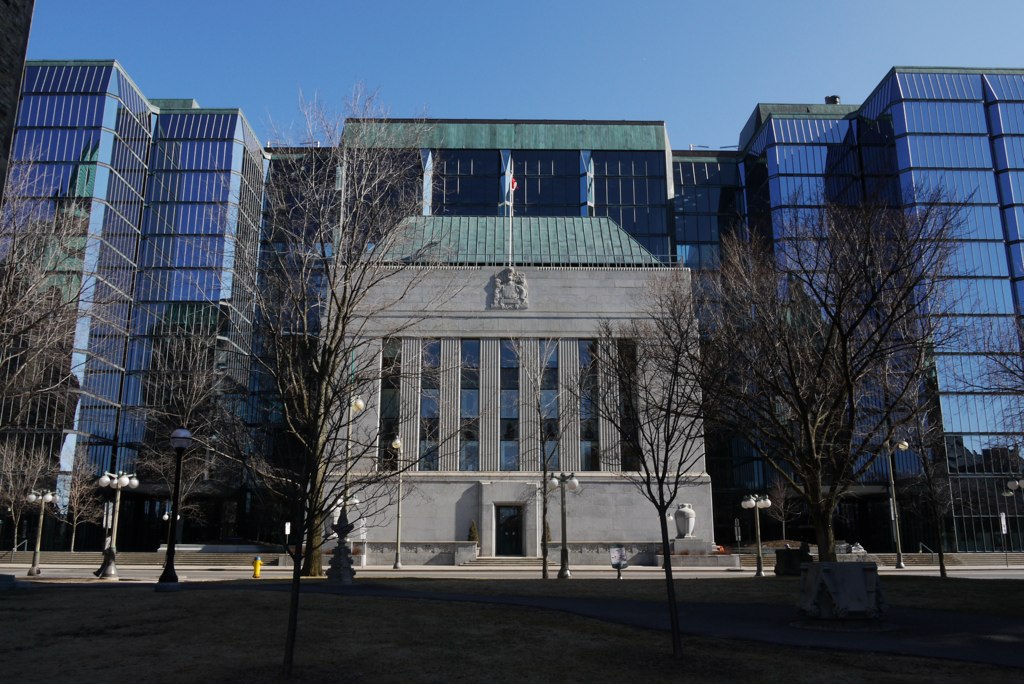On November 13, Bank of Canada Senior Deputy Governor Carolyn Wilkins gave a speech at Wilfrid Laurier University in Waterloo, Ontario, on 'Money in a Digital World,' where she tackled the topic of 'e-money,' dissecting both the benefits and risks of such innovations, and said that Canada's central bank was "undertaking research on the potential merits of issuing e-money."
"There are two types of e-money that I want to talk about today," started Wilkins. "The first type is denominated in a national currency, and it represents a claim on the issuer. The second type of e-money is cryptocurrency - such as Bitcoin. This type of e-money is not denominated in any national currency and so has its own unit of account." She continued:
"It is also completely decentralized and does not represent a claim on the issuer. This is the revolutionary part of cryptocurrencies - transactions can be validated without a trusted third party."
Mentioning the case of Kenyans and M-Pesas, the Senior Deputy Governor said that while e-money was particular popular in developed countries where relatively fewer people have access to banking services, cryptocurrencies have yet to gain much traction with people making purchases in Canada. Taking the figurative example of the tango, she argued:
"What we find is that adoption of e-money is exactly like the tango - it takes two. Buyers need to decide whether to use the new payment method while sellers need to decide whether they’ll accept it. It turns out that it’s the seller’s side that leads the dance; if there is a large enough fraction of sellers accepting new payment methods, more and more buyers are prompted to use them, eventually leading to complete adoption on both sides. In the case of Bitcoin, not many people want to dance."
This trend, she explained, is due to the fact that Bitcoin has "serious flaws when it comes to satisfying the three main characteristics of money." Thus, the Bank of Canada views Bitcoin and other cryptocurrencies as investment products rather than money, and she noted that "any resulting gains or losses could be taxable income that must be reported."

Even though 'e-money' is not big enough to pose any risk to Canada's financial stability, the central bank is "watching developments closely." She added:
"The federal government also is undertaking a review of payment systems in Canada to ensure that the degree of regulation of payment systems and methods is appropriate."
And while cryptocurrencies offer many benefits such as costs reduction, and increased privacy, the Senior Deputy Governor argued there are many risks from which people needed to be aware of. These risks, she said, include the fact that cryptocurrencies are "lightly regulated with limited or no user protection," the exposure to theft, fraud and loss, when trusting a third party such as an exchange or a Bitcoin wallet company, and finally, the fact that cryptocurrencies can be used for money laundering, terrorist financing, and other criminal activities.
In the potentiality that cryptocurrencies were to gain widespread acceptance, "there would be implications for the central bank," said Wilkins. She explained:
"In the unlikely situation in which cryptocurrencies were used broadly, a significant proportion of economic transactions would not be denominated in Canadian dollars. This would reduce the Bank’s ability to influence macroeconomic activity through Canadian interest rates.
"If e-money denominated in Canadian dollars were to significantly replace bank notes, there are some options that the central bank could take so as to be in a position to intervene in markets or be the lender of last resort."
To conclude, Wilkins said that while 'e-money' offered many benefits, these technologies are "circumventing our old models of payment," and have developed "new risks" that could dramatically affect the Canadian financial system as a whole.

Thus, she said, "the federal government, with the Bank's help, is modernizing the oversight frameworks for payments," and "the Bank is also undertaking research on the potential merits of issuing e-money."
The Bank of Canada is said to be "working through the tough issues," in order to "support the benefits of innovation, while safeguarding the integrity of Canada's money and payment systems and, ultimately, financial stability."
Did you enjoy this article? You may also be interested in reading these one:
